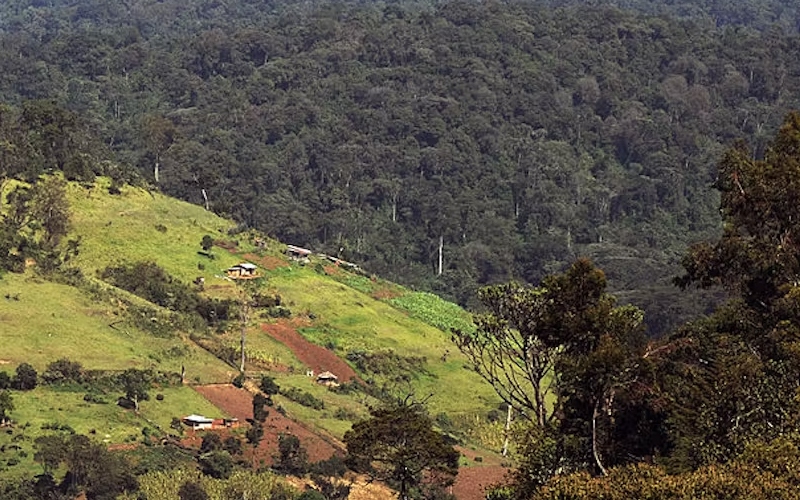Environmentalists decry logging in Mau Forest as betrayal of climate commitments

The Mau Forest Complex is one of Kenya’s five major water towers, supporting rivers, agriculture, and communities across the Rift Valley, Western, and Nyanza regions.
Conservation groups have strongly criticised the government’s decision to lift the logging ban in the Mau Forest Complex, warning that it threatens water security, food supply, and the country’s climate commitments.
In a statement, the Green Belt Movement and Greenpeace Africa said the move undermines years of forest restoration efforts and could have devastating ecological and economic consequences.
More To Read
- Green Congress of Kenya party opens countrywide offices, eyes green revolution
- Land is Africa’s best hope for climate adaptation: It must be the focus at COP30
- Ruto lifts nationwide logging ban, pledges Kenyan-made furniture revolution
- Africa’s ‘great green wall’ is stalling: In Senegal very few planted areas show progress
- Government launches 10-year mega plan to revive Mau Forest Complex
- Lawyer moves to court over Nairobi City Park takeover by KFS
Speaking on Monday during a public engagement at Molo Technical and Vocational College in Nakuru County, President William Ruto lifted the ban on logging, saying the move aims to promote local industries and reduce dependence on imported timber.
He added that the move was intended to ensure mature trees are put to productive use instead of rotting in the forests.
The Mau Forest Complex is one of Kenya’s five major water towers, supporting rivers, agriculture, and communities across the Rift Valley, Western, and Nyanza regions. Conservationists have warned that logging in this area could put millions of Kenyans at risk by affecting access to clean water, agriculture, and stable weather patterns.
“We firmly oppose the decision by the Government of Kenya to lift the logging ban in the Mau Forest Complex. It stands in clear contradiction to the government’s own pledges on environmental conservation and climate action,” said the environmental groups.
The Green Belt Movement and Greenpeace Africa cited the Forest Status Report 2024, noting that Kenya loses an average of 84,716 hectares of forest each year to deforestation, with another 14,934 hectares suffering degradation.
They said the report estimates that these losses cost the economy around Sh534 billion annually in lost ecosystem services, including reduced rainfall, poor water quality, and soil erosion.
"Even more concerning is that this decision comes only two years after the government launched the 15 Billion Tree Campaign, aimed at restoring Kenya's landscapes and increasing tree cover by 2032. While the government may argue that the logging will be confined to plantations, the reality is that past practices have shown weak monitoring, non-transparent allocation, and unsustainable extraction often spill over into conservation sites," they stated.
"Allowing logging within plantations located in critical water towers, such as the Mau, risks severe ecological damage, undermining the very restoration goals the country has set. It is deeply ironic to call on citizens to plant trees while sanctioning activities that destroy those that have taken decades to grow."
The groups also noted that a 2023 Environment and Land Court ruling required the government to establish a framework for public participation and oversight before harvesting, and that logging of 5,000 hectares of mature plantation trees must be supervised by a Multi-Agency Oversight Team. They said there was no evidence that the government had complied with these requirements.
"Kenya's tree cover currently stands at about nine per cent, still below the constitutional target of ten per cent. Instead of consolidating gains made through tree planting and restoration, this move risks reversing progress and deepening environmental degradation," the Conservationists said.
The Green Belt Movement and Greenpeace Africa urged the government to halt all logging in the Mau Forest until it fully complies with the court order by establishing an implementation framework, publishing the Strategic Plan, Forest Management Plans, and Felling Plans, and ensuring meaningful public participation before any harvesting resumes. The groups further called for stronger oversight and monitoring, investment in private plantations to meet timber demand, and a public report on compliance with court orders and previous taskforce recommendations.
"Kenya must reject the false choice between development and conservation. Sustainable growth depends on healthy ecosystems. Forests are not barriers to progress. They are the foundation of water security, agriculture, and economic resilience," the groups stated.
"The Mau Forest Complex is too important to be treated as a political bargaining chip. Its destruction would jeopardise the stability of rivers that feed Lake Nakuru, Lake Victoria and numerous irrigation systems. It would worsen droughts, floods and food insecurity, undermining national resilience and climate adaptation efforts. This is not just environmental mismanagement; it is economic self-sabotage," they concluded.
Top Stories Today














































